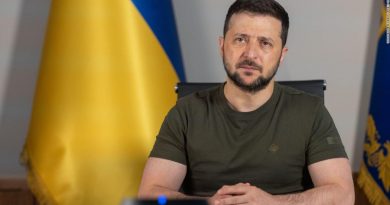Sudan’s raging war forces more than two million from their homes
More than two million people in Sudan have been forced from their homes due to two months of fighting between the country’s army and the paramilitary Rapid Support Forces (RSF), according to the United Nations.
Sudan plunged into chaos on April 15 when months-long tensions between the army chief, Abdel Fattah al-Burhan, and the RSF commander, Mohamed Hamdan “Hemedti” Dagalo, exploded into war.
The fighting continued unabated on Wednesday in parts of the capital, Khartoum, and the western region of Darfur – places that have seen some of the worst battles so far. At least 959 civilians have been killed and about 4,750 others were wounded as of June 12, according to the Sudan Doctors Syndicate, which tracks civilian casualties.
The medical group said the toll could be much higher given that it was unable to take into account those who were killed or wounded in the ongoing clashes in el-Geneina, the provincial capital of West Darfur. The city’s hospitals have been out of service since the fighting erupted there in April, the group said.
The brutal clashes have forced more than 1.6 million people to leave their homes for safer areas inside Sudan, according to the International Organization for Migration (IOM). About 530,000 others have fled to the neighbouring countries of Egypt, South Sudan, Chad, Ethiopia, the Central African Republic and Libya, the UN’s migration agency said.
All of Sudan’s 18 provinces have experienced displacement, with Khartoum at the top of the list with about 65 percent of the total number of displaced people, followed by West Darfur with more than 17 percent, according to the IOM’s Displacement Tracking Matrix.
Ethnic targeting
In el-Geneina, the RSF and allied Arab militias rampaged through the city over the past week, killing and wounding hundreds of people, local activists and UN officials were quoted as saying by The Associated Press news agency.
Activists and residents in el-Geneina also reported that dozens of women were sexually attacked inside their homes and while trying to flee the fighting. Almost all rape cases were blamed on the RSF, which did not respond to repeated requests for comment, according to AP.
On Tuesday, Volker Perthes, the UN envoy in Sudan, said the fighting in el-Geneina had taken “an ethnic dimension”, with Arab militias and armed men in RSF uniforms showing “an emerging pattern of large-scale targeted attacks against civilians based on their ethnic identities“.
Such attacks, “if verified, could amount to crimes against humanity,” Perthes warned.
The RSF denies any involvement in attacks against civilians in Darfur, but refugees who spoke to Al Jazeera last month in settlements inside Chad said they had seen men wearing RSF uniforms joining the fight alongside Arab armed groups.
Khamis Abdalla Abkar, the provincial governor of West Darfur province, accused the RSF and allied armed groups of attacking local communities across el-Geneina. In a phone interview on Wednesday with Saudi-owned television station Al-Hadath, he urged the international community to intervene to protect civilians in his province.
“We haven’t seen the army leave its base to defend people,” he said.
More than a dozen refugees who were interviewed by Al Jazeera last month in Chad had said violence erupted in their towns and villages after the army or the local police left, creating a power vacuum that was filled by Arab militias. Not a single resident said the army offered any protection.
Alice Wairimu Nderitu, the UN special adviser on the prevention of genocide, also condemned “the shocking violence” in el-Geneina. She warned in a statement on Tuesday that such fighting could turn into “renewed campaigns of rape, murder, and ethnic cleansing amounting to atrocity crimes”.
Sudan has been without a functioning government since September 2021, when al-Burhan and Hemedti dismissed Prime Minister Abdalla Hamdok’s transitional government and declared a state of emergency in a move decried by political forces as a “coup”.
The transitional period, which started in August 2019 after the removal of longtime ruler Omar al-Bashir, had been scheduled to end with elections in early 2024.
Darfur had been the scene of brutal war in the early 2000s, when al-Bashir and the military armed and recruited Arab militias nicknamed the Janjaweed to fight mostly non-Arab armed groups, which were rebelling against the state and accusing it of neglect and exploitation. In 2013, the Janjaweed were reorganised into the RSF under the leadership of Hemedti.
An estimated 300,000 people are believed to have died in Darfur’s two-decade conflict.




